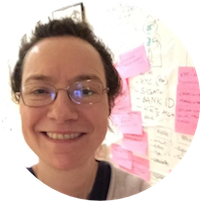
overcoming distribution challenges with trust
Blockchain technology offers an opportunity to add transparency and confidence to aid pipelines management, by creating an end to end audit trail of where each unit of currency goes, together with non traditional identification techniques to ensure the correct recipients are benefitting, even if they lack formal identity or bank accounts.
Aid for disaster relief and longer-term development programmes attracts significant investment from governments, businesses and private individuals, but faces a huge logistical and reputational challenge. Typical aid donation scenarios involve a donation in one currency, which is converted to a second currency by the global NGO distributing the aid, then another currency in-country and possibly further conversions as global distributors are used to support the emergency.
Aid is also traditionally subject to significant “leakage”, with funds and goods being diverted to corrupt officials or, commonly, localised people taking advantage and selling goods on the open market. Donations to aid funds typically lose around 30% to multiple FX and transaction charges and poor terms from banks, while administration is high and it’s very hard to trace funds, leading to huge corruption and fraud opportunities.
Download the white paper now:
About the Authors
Latif Amars

Latif has a strong interest in global sustainability issues, especially how the global community make sense of, negotiate and attempt to solve environmental issues. Pursuing this, he worked with Oxfam to bolster climate resilience in the Horn, East and Central Africa region; operationalised what became a leading organisation on climate change in Tanzania, and engaged in the UN climate negotiations.
Frustrated with structural inertia that exist to solve the environmental challenges, he decided to focus on solutions and helping entrepreneurs, companies and governments to explore sustainable pathways. To that end, he published research articles on sustainability transitions and worked to connect pioneers to bring about systemic change in the energy sector. Before joining hiveonline, Latif worked with the World Bank analysing client country environmental and natural resources challenges.
Sofie Blakstad

Following an early career in publishing and marketing, Sofie taught herself programming and business design, and subsequently spent most of her career building banks, including the first online bank for UBS. Having worked for eight major international banks in everything from IT infrastructure delivery to business transformation, run programmes in 60 countries worth over USD 1bn, and supported startups, Sofie decided the last thing the world needs is another bank and hence hiveonline was born.
For hiveonline, Sofie has been invited to speak at the World Economic Forum, G7 and G20 groups and World Bank/IMF Summit in partnership with UNEP and the Sustainable Digital Finance Alliance, where she is an advisor on fintech applications to sustainable finance, blockchain, identity and trust. Sofie is also an advisor to the Edinburgh Futures Institute and holds an MSc in Informatics. Sofie’s second book, with Rob Allen, Fintech Revolution (Palgrave Macmillan, 2018) was named “One of the Best Fintech Books of All Time” and “One of the Best New Fintech Books for 2019 (Book Authority).
© hiveonline 2019